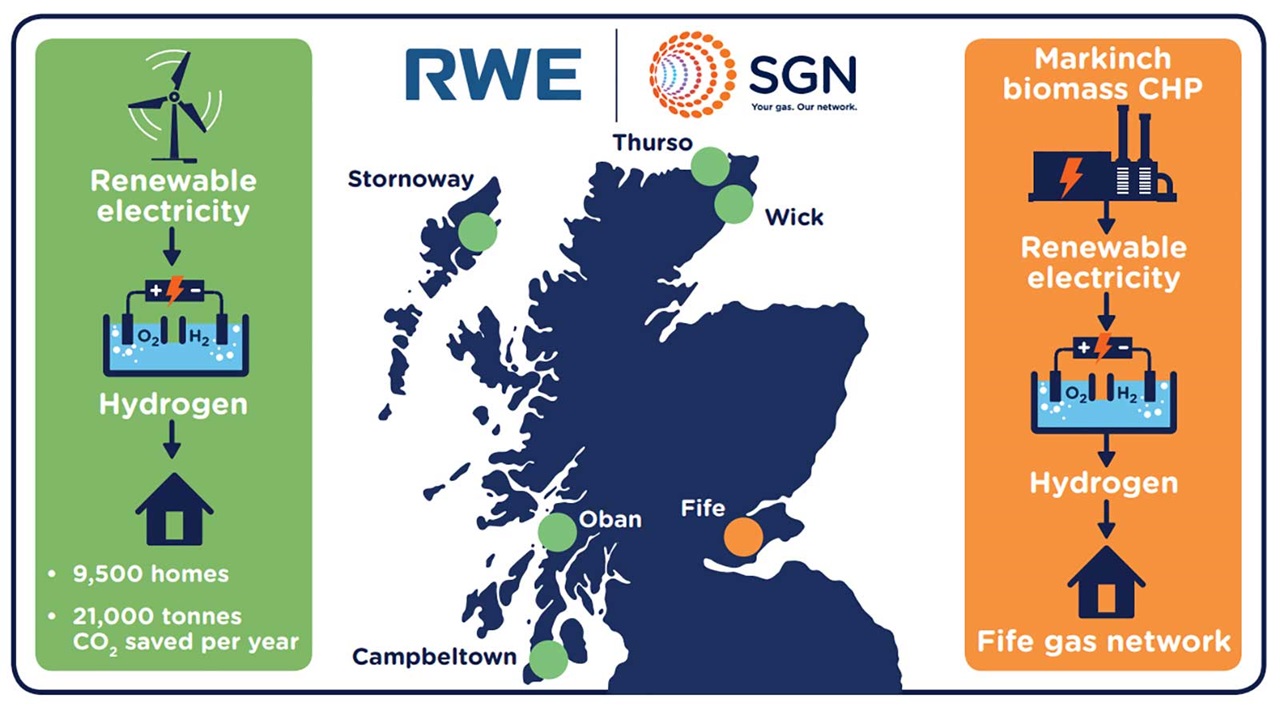United Kingdom – A groundbreaking partnership between gas distribution company SGN and renewables generator RWE will focus on supplying sustainable hydrogen gas to Scottish towns and rural communities.
The two companies have signed a Memorandum of Understanding (MoU) to investigate the development of electrolysers powered by RWE’s ten onshore wind farms in Scotland, which have a combined capacity of 213 megawatts, to supply hydrogen gas to homes and businesses via Scotland’s gas network.
Hydrogen plays a critical role in achieving net zero emissions and is a necessary component for decarbonizing sectors such as industry, heavy-duty transportation, aviation, and heat. The UK Government’s Energy Security Strategy, published in April 2022, doubled its ambition for low-carbon hydrogen production capacity to 10GW by 2030. Similarly, the Hydrogen Action Plan of the Scottish Government aims to produce 5GW of hydrogen by 2030 and 25GW by 2045.
The partnership will look into decarbonizing homes and businesses that are connected to the Campbeltown, Stornoway, Oban, Thurso, and Wick networks but are not connected to the mains gas network. The current fuels for these networks are liquefied natural gas (LNG) and liquefied petroleum gas (LPG), which, if replaced with hydrogen, could save 21,000 tonnes of CO2 per year and decarbonize 9,500 properties. The partnership will determine the amount of hydrogen required, the requirements for converting these networks to hydrogen, and the availability of green electrolytic hydrogen from RWE’s nearby renewable onshore wind farms. By providing a use for the green electricity generated, the project could also unlock onshore wind farm development in grid-constrained areas.
Gaining experience
RWE’s Markinch CHP biomass plant will also conduct a feasibility study into a 100-megawatt (MW) electrolyser in the coming months. Green hydrogen could be produced using local and grid-connected renewable energy and connected to SGN’s gas network in Fife. It would complement SGN’s current work in Levenmouth on the world’s first H100 Fife project.
The knowledge and experience gained from these preliminary studies will aid in a better understanding of the practicalities and economics of the entire hydrogen cycle, and will serve as a crucial prelude to a potential funding application under the UK Government’s Net Zero Hydrogen Fund.





